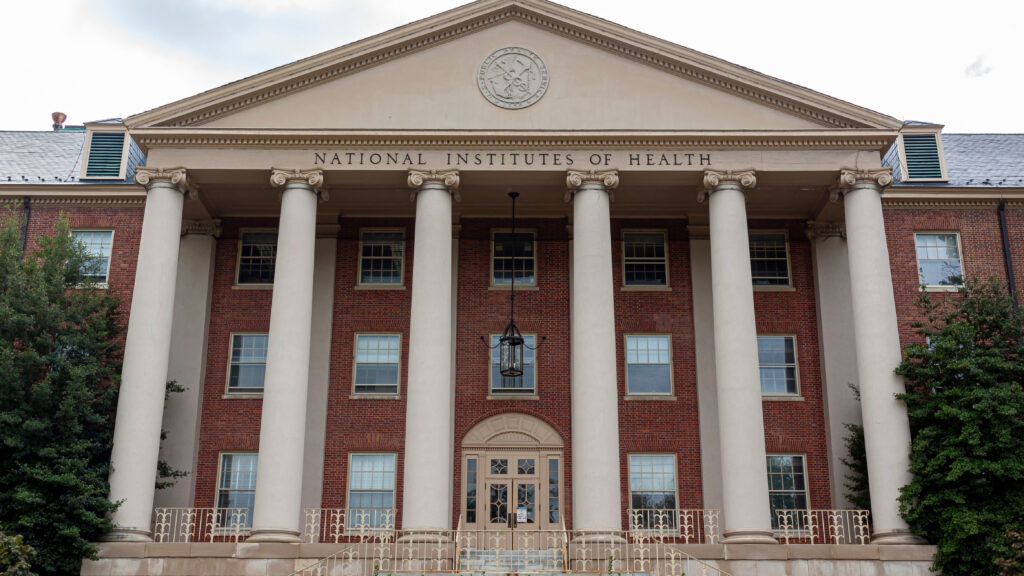
Get your daily dose of health and medicine every weekday with STAT’s free newsletter Morning Rounds. Sign up here.
It’s October, which means it’s time to make hot apple cider and watch Over the Garden Wall. Potatoes and Molasses, anyone?
Advertisement
The NIH’s $50 million autism bet
Last week, the National Institutes of Health announced the 13 teams of researchers who will receive money to study autism. The projects are diverse in scope, but the trendline is impossible to ignore: the federal government is doubling down on environment exposures as the way to understand why some people have autism.
There is growing recognition in the scientific community that environmental factors during pregnancy can influence whether a child is diagnosed with autism, even though the condition is seen to be mostly genetic. They even have a fancy word for focusing on the seemingly infinite environmental forces that can affect you: the exposome.
Lots more about the exposome and the grants getting funded in my story, but here’s a taste from autism researcher Craig Newschaffer about the possibilities and perils of trying to measure environmental exposures.
Advertisement
“DNA, RNA protein, we kind of know what it is. On the exposome side, what is it that we’re measuring?” said Newschaffer, who did not submit a proposal for the new NIH initiative. “Human beings are not exposed to one thing at a time. We live out here in the soup we call nature, and are exposed to many things simultaneously.”
Why the NIH is moving away from animal research
Meet the person behind the NIH’s push to reduce the use of animals in biomedical research: Nicole Kleinstreuer.
The acting deputy director for program coordination, planning, and strategic initiatives is a big reason why the NIH announced last week an $87-million effort to support the development of one type of new methodology called organoids: miniature cell cultures designed to mimic human organs. The self-described math nerd is also leading an effort to develop new non-animal methodologies to research.
Want Kleinstreuer’s opinion on the scientific fields that will struggle most to come up with non-animal replacements? Or to learn more about organoids playing video games? Read more here.
FDA’s approval of generic mifepristone receives pushback
The typically rote process of generic drug approval at the Food and Drug Administration generated some negative attention Thursday after federal officials approved another generic version of the abortion pill mifepristone.
Drugmaker Evita Solutions announced on its website that the Food and Drug Administration signed off on its low-cost form of the pill, which is approved to end pregnancies through 10 weeks. The regulatory sign off quickly triggered pushback from anti-abortion groups and politicians aligned with the Trump administration. Top health officials face growing pressure from abortion opponents to reevaluate mifepristone, which was approved 25 years ago and has repeatedly been deemed safe and effective by FDA scientists.
The Food and Drug Administration typically approves such applications within 10 months. But filing documents posted to the FDA’s website show that Evita Solutions filed its application to market mifepristone four years ago. Read more here.
Advertisement
Trump delays decision on drug price negotiation loophole
For months, Trump has publicly called on drugmakers to lower their prices for Americans. Now, the Trump administration is delaying a proposal to crack down on a loophole that allows drugmakers to avoid Medicare price negotiation, STAT’s John Wilkerson reports.
Earlier this year, the administration took an interest in plugging a supposed-loophole in the drug negotiation program that allows drugmakers to avoid price negotiations by combining ingredients. That guidance would apply to drugs in the coming years.
But the final version of that guidance states that the Centers for Medicare and Medicaid Services is putting off that policy for another year. This decision is the latest example of the administration going easy on drugmakers, even as President Trump publicly calls on drug companies to do more to lower their prices. Read more from John here.
Trump administration’s autism rhetoric is reviving eugenic thinking
Health secretary Robert F. Kennedy Jr.’s characterization of autism as an epidemic in need of immediate attention is not just factually wrong, writes Shoumita Dasgupta, a professor of medicine at Boston University Chobanian & Avedisian School of Medicine. It also dehumanizes autistic people in ways that echo the eugenic policies of the early 20th century.
“The Trump administration is reviving eugenic thinking,” Dasgupta writes, by restricting acetaminophen use during pregnancy, withholding vaccines from children, and identifying and eliminating the genetic causes of autism.
“This problematic framing of autistic people as problems to be solved … takes a very unidimensional view on autism or other related identities, focusing exclusively on deficit,” she writes. Read more about the echoes of the past in the present here.
What we’re reading



